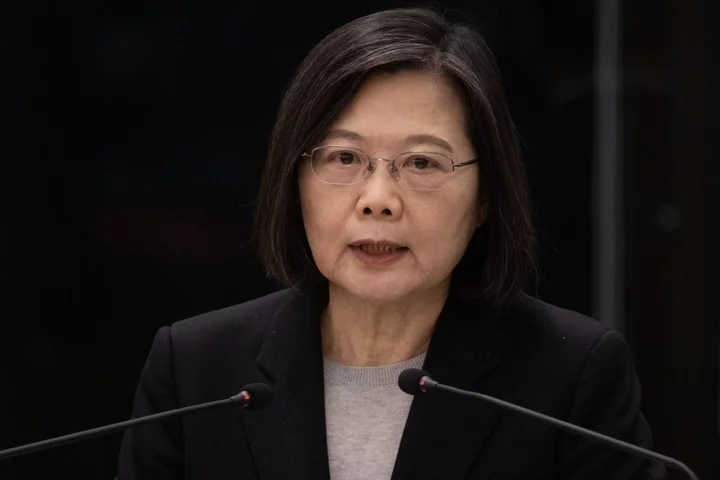President Tsai Ing-wen’s government is racing to plug loopholes in its equality laws after a series of sexual harassment scandals rocked the island’s political elite ahead of a critical election.
Tsai’s cabinet is expected to green light significantly tougher measures against sexual harassment on Thursday. Employers who commit sexual harassment will face fines as large as NT$1 million ($32,144) and as long as three years in prison under the revised legislation, Taiwan’s official Central News Agency reported.
The cabinet’s proposal will be delivered to the legislature in the coming weeks for approval, with the changes expected to become law by the end of July.
A wave of high-profile #MeToo cases have ensnared at least ten people linked to the ruling Democratic Progressive Party in recent months. Those scandals have hit as Taiwanese voters are preparing to choose their next president in January, in a vote that will define cross-strait and US-China relations for years to come.
The DPP is already facing an erosion in public support as a global decline in demand for electronics has led to a slowing domestic economy. Still, it’s been hard for Taiwan’s opposition Kuomintang Party to capitalize because two of its members have also faced harassment accusations. Two lawmakers from the Taiwan People’s Party have been implicated.
Getting ahead of the #MeToo allegations could provide the DPP with an opportunity to win back some public favor.
Wen-Ti Sung, a specialist on Taiwanese politics and cross-strait relations at Australian National University, said: “If the DPP proves it can move beyond merely apologizing to victims to spending concrete political capital on pushing through long-standing legislative reforms, it will go some way to repair the DPP’s self-professed brand as a progressive party.”
Making Waves
The #MeToo movement started with a Netflix show about a fictional presidential campaign. Wave Makers portrays a senior political figure who promises to speak out for a junior staffer, after she is groped at work but forced to stay quiet.
After watching the show, former DPP staffer Chen Chien-Jou went public on Facebook with allegations the party’s head of women’s affairs dismissed her harassment complaint. Hsu Chia-tien, who led that department during the time Chen complained, resigned from her post as DPP deputy secretary-general.
READ MORE: Taiwan’s DPP Apologizes in #MeToo Case as Tsai Backs Probe
Since then, the #MeToo storm has ensured powerful political figures, popular celebrities, and revered pro-democracy leaders. More than 200 people have been implicated, according to an online tally based on news reports and social media posts. Bloomberg News was unable to independently verify the veracity of the accusations.
President Tsai personally apologized after one of her policy advisers resigned following accusations, and said she’d instructed her government to enact a broad reform plan including a review of and amendments to current gender equality rules.
Progressive Reputation
Taiwan’s #MeToo moment comes years after the US had a national reckoning over harassment and gender discrimination. The scandals contrast with the island’s image as one of Asia’s most progressive societies: Taiwan was the first place in the region to legalize same-sex marriage and elected its first female president in 2016.
A Ministry of Labor survey conducted last year found 3.3% of female employees and 1.3% of male workers had experienced sexual harassment at work. The manpower ministry overseeing the island of 23.3 million people, however, received only 165 complaints in 2022.
“Our gender culture still hasn’t caught up with the laws,” said Fan Yun, a DPP legislator who recently won a sexual harassment lawsuit against a KMT lawmaker. “Speaking up takes a lot of courage, because speaking up in this culture may lead to victim shaming.”
In China, where Wave Makers is censored, some users of the Twitter-like Weibo platform have been closely watching Taiwan’s #MeToo movement unfurl. The ruling Communist Party has suppressed China’s nascent #MeToo movement, viewing it as a vehicle for spreading liberal Western values.
“The difference is only whether our society has given enough support to the victims for them to have the courage to stand up,” one user wrote Weibo.
“Maybe we will have our own trigger several decades later,” another user wrote.
--With assistance from Cindy Wang.

